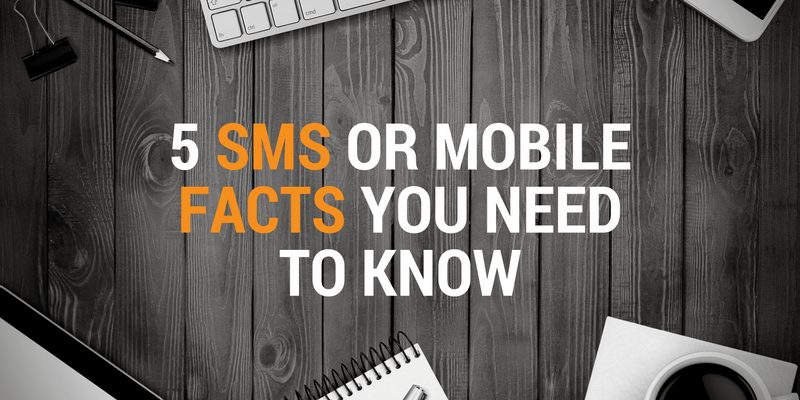Do You Really Check Your Mobile Phone 1550 Times a Week?

Recently Tecmark released the results of a survey they conducted on mobile phone use. You’ll see the results reported everywhere online as the data is quite extraordinary. Here’s a summary of statistics for an average user:
- They perform 221 tasks per day, or 1547 per week
- They start using the mobile before they get out of bed, around 7:30 am
- They continue to use it late into the night until going to bed around 11:21 pm
- In total, they spend 3 hours and 16 minutes using their mobile per day
Right now you’re either avidly shaking your head up and down saying, “Yes! That’s me” or you’re shaking you’re head the other way saying “That’s impossible”. In fact, many commenters on the articles are quick to point out that if you perform 221 tasks per day and spend 3 hours and 16 minutes on your mobile, you are doing 1 task every minute for the entire 3 hours.
That isn’t how most people use their mobiles (switching to different tasks every minute), at least according to anecdotal evidence (look around or ask some people around you!). We might spend 5 minutes reading Facebook updates, another 5 uploading pictures to Instagram, or 30 seconds checking the weather.
We certainly use our mobiles for lots of things. Another survey by Neilsen shows the average number of apps people use per month is 26, and spend just over 30 hours per month using them.
That certainly paints a slightly different picture. According to Techmark, the total usage per month would total over 97 hours, compared to just 30 for Neilsen.
I think most of the differences stem from the way the data was gathered. Don’t worry, I’m not going to get technical. Basically, in the Tecmark study the respondents answered what they thought about using their phones. They answered based on their memory of what they do and how often they do it. Neilsen used a tracking app voluntarily installed on the mobiles of everyone participating that automatically recorded their actions.
So Neilsen reveals actual usage and Tecmark shows more about perceived usage. Of course the surveys were performed with two totally different groups of people. Perhaps Tecmark unknowingly had a group of very avid mobile users!
Despite the differences in the numbers, both studies confirm one thing: Mobiles have become a major part of our daily lives.
Back to the original question for this blog: Do you really check your mobile phone 1550 times a week? My answer would have to be a resounding yes. I’m a tech addict if there ever was one. What about you?
Related Articles
5 Key SMS Marketing Statistics
UK digital advertising spending tops 7.4 billion euros
3 Reasons SMS Messaging is Good For The Environment
Many organisations are looking to operate in a more environmentally friendly way. This includes everything from their office supplies, materials used in creating their products, and also choosing suppliers and vendors that are also environmentally aware. And now, SMS.
A2P SMS Messaging Market is Complex, But Growing
I came across an interesting article regarding the A2P market. It’s entitled “Growing Employment Rate to Benefit BFSI A2P SMS Market in Switzerland.” The contents summarise a new report from Transparency Market Research about the A2P market in Switzerland, specifically how it relates to BFSI or Banking, Financial Services, and Insurance (BFSI). You might be thinking that sounds boring rather than interesting, but what drew my attention was the relationship of employment to A2P SMS messaging.
Have IM Apps Made SMS Messaging Irrelevant?
Earlier this year there was big news. WhatsApp users were sending more messages each day than SMS users were sending. According to the Telegraph, WhatsApp was 50% more popular than SMS messaging. And the truth is the number of SMS messages sent each day has declined over the last few years. In the UK it was down almost 25% from 2012 to 2013. But is that the whole picture?
5 SMS or Mobile Facts You Need to Know
So many of us are used to having our mobiles around nearly 24 hours a day that it’s easy to forget it’s still a growing industry. And though SMS has been around for over two decades, the ways we use it and people’s willingness to use it continues to grow. So for this blog I picked out five facts about mobile and SMS that really make the case that SMS for business has come of age. Let’s see if you agree.
70% of Employees Want Their Employers to Use SMS Messaging
SMS messaging is a terrific way of keeping in touch with employees. Confirm work schedules, notify employees of payroll transfers, chase deadlines and more. What's really great is that the employees themselves really want employers to communicate the way.
Marketing Review for 2015 Holiday Season
Comparing SMS and email marketing results for the 2015 holiday season, this article taps into reports from Expedia and Adobe to share important insights.
Do You Ever Unplug From Your Mobile?
While it’s undeniable technology is a growing part of our everyday lives, it may be surprising how few of us ever turn it off. Or leave it behind. Most people rarely 'unplug' from their mobile devices. This provides unparallelled opportunities for marketing, especially via SMS text messaging.
Double Conversion Rates with SMS Marketing
According to Internet Retailer, data conversion rates for text messages are double that of email when the link goes to a mobile responsive landing page. Even with a small list, this can result in a huge increase in sales, signups, lead generation, contest entries or whatever the goal of your campaign is.












